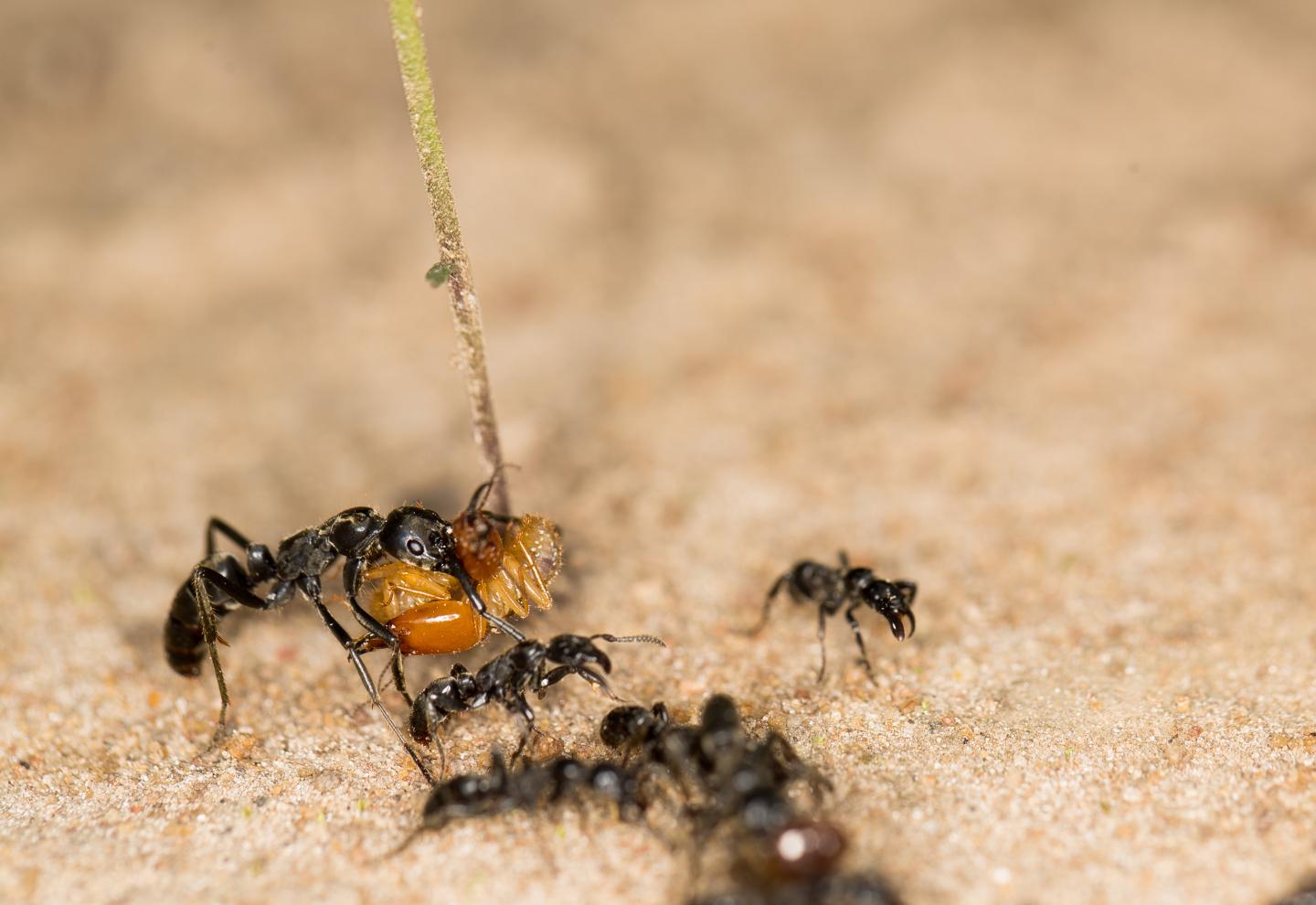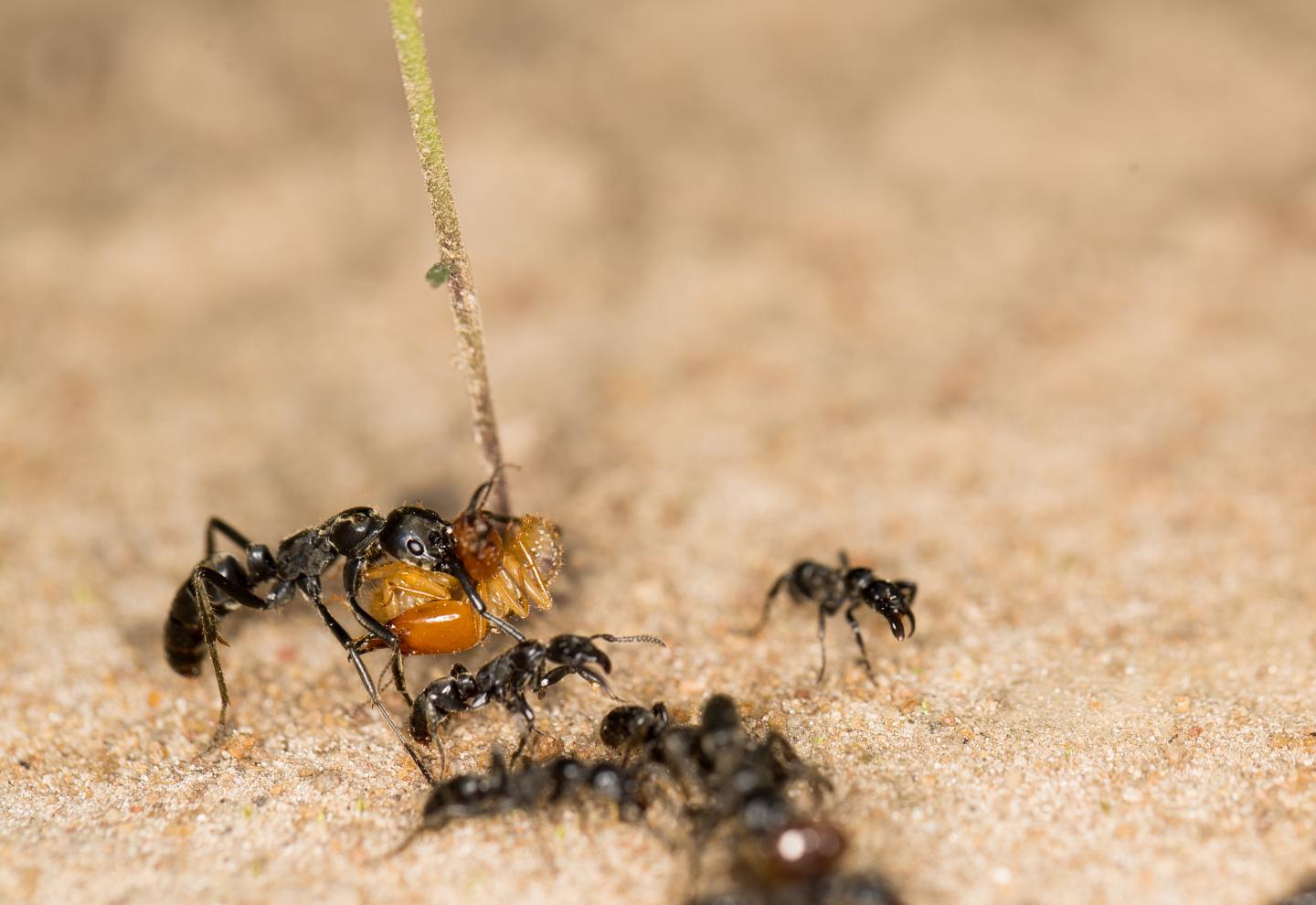
Credit: Erik Frank
Termites are the African Matabele ants' (Megaponera analis) favourite dish. Proceeding in long files of 200 to 600, they raid termites at their foraging sites and haul the prey back to their nest where they are ultimately eaten.
Before starting their raids, the ants send out scouts to look for the termites' foraging sites. Once they have spotted them, the scout ants return to the nest to mobilize their comrades. On their way back to the nest, the scouts show astonishing navigational abilities: They take the quickest route rather than the shortest.
Travelling faster in open country
If the direct way back passes through an area densely grown with grass, for example, the scouts prefer taking detours through open terrain which enables them to double their pace – and this is worth it: They travel much faster although they are not taking the shortest route. This reduces their time back to the nest by 35 percent on average as Erik T. Frank, Philipp Hönle, and Karl Eduard Linsenmair from Julius-Maximilians-Universität Würzburg (JMU) in Bavaria, Germany, discovered. The biologists' results have been published in the Journal of Experimental Biology.
Individual ants make decisions
"Other ant species are known to rely on various navigational aids to determine the shortest way back to the nest from a foraging site," Erik Franks says. The navigational skills of the Matabele ants seem to be even more complex, a finding the researchers want to explore in greater detail now.
Moreover, the JMU scientists were surprised that the decision which way to take is made by individual ants and not collectively. "We have thus provided the first proof of time optimized path integration by individuals in the ant kingdom," says Frank who is currently conducting postdoc research at the University of Lausanne.
###
Media Contact
Erik T. Frank
[email protected]
41-216-924-176
@Uni_WUE
https://www.uni-wuerzburg.de/
Original Source
https://www.uni-wuerzburg.de/en/sonstiges/news/detail/news/travelling-faster-with-detours/ http://dx.doi.org/10.1242/jeb.174854





